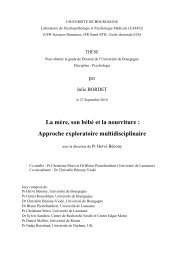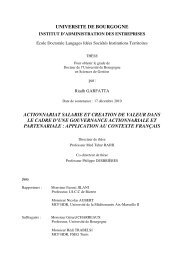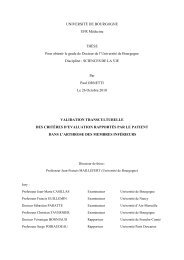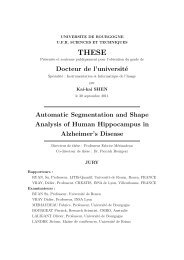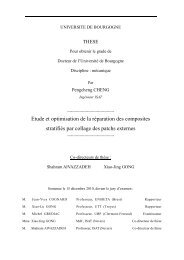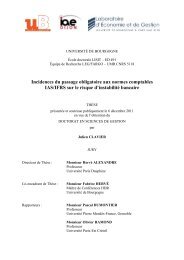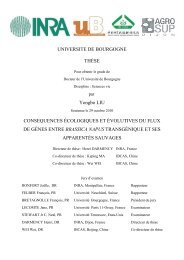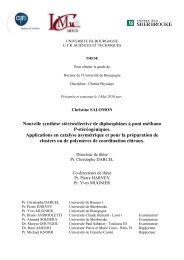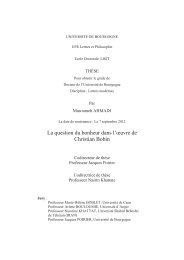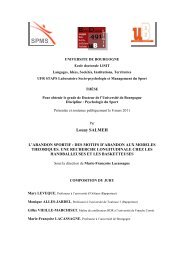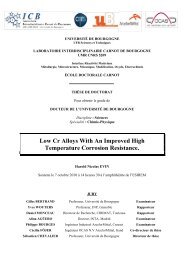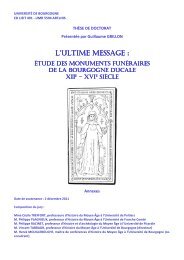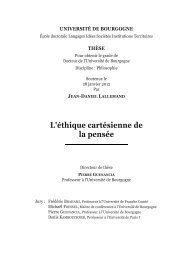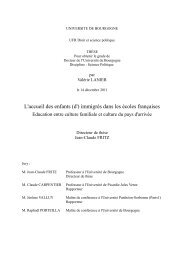Higher education in Asian countries and the role of international ...
Higher education in Asian countries and the role of international ...
Higher education in Asian countries and the role of international ...
You also want an ePaper? Increase the reach of your titles
YUMPU automatically turns print PDFs into web optimized ePapers that Google loves.
47<br />
at sub-regional, regional <strong>and</strong> <strong>in</strong>ternational levels to align state <strong>in</strong>terests <strong>and</strong> preferences coupled<br />
with power, <strong>and</strong> it is only possible through establish<strong>in</strong>g <strong>and</strong> streng<strong>the</strong>n<strong>in</strong>g IGOs. The <strong>in</strong>tegration<br />
<strong>and</strong> cooperation through IGOs are based upon rational self-<strong>in</strong>terest <strong>of</strong> states ra<strong>the</strong>r than<br />
practicability <strong>and</strong> usability as seen <strong>in</strong> functionalism <strong>and</strong> neo-functionalism. Like neo-realism,<br />
<strong>in</strong>ter-governmentalism also agree with this premise that powerful states have higher <strong>in</strong>fluence on<br />
<strong>the</strong> behavior <strong>of</strong> IGOs <strong>and</strong> such states, comparatively, drive more benefits.<br />
3.4.5.8 Game Theory<br />
Game <strong>the</strong>ory or <strong>the</strong>ory <strong>of</strong> games was <strong>in</strong>itially developed by John von Neumann <strong>and</strong> Oscar<br />
Morgenstern <strong>and</strong> first appeared <strong>in</strong> <strong>the</strong>ir book entitle The Theory <strong>of</strong> Games <strong>and</strong> Economic<br />
Behavior (1944) but to study <strong>the</strong> politics it was applied <strong>in</strong> 1960. Game <strong>the</strong>ory is based on a<br />
ma<strong>the</strong>matical method <strong>of</strong> decision-mak<strong>in</strong>g <strong>in</strong> which a competitive situation is analyzed to<br />
determ<strong>in</strong>e <strong>the</strong> optimal course <strong>of</strong> action for an <strong>in</strong>terested party (The American Heritag Dictionary,<br />
2009). This <strong>the</strong>ory is helpful <strong>in</strong> anticipat<strong>in</strong>g <strong>and</strong> expla<strong>in</strong><strong>in</strong>g <strong>the</strong> actions <strong>of</strong> all agents or actors who<br />
participate <strong>in</strong> a competitive situation. "Game <strong>the</strong>ory is an umbrella <strong>the</strong>ory for <strong>the</strong> rational side <strong>of</strong><br />
social science, where 'social' is <strong>in</strong>terpreted broadly, to <strong>in</strong>clude human as well as non-human<br />
players" (Aumann, 1987). Game <strong>the</strong>ory is applied <strong>in</strong> decision mak<strong>in</strong>g, <strong>in</strong> political, economic,<br />
bus<strong>in</strong>ess <strong>and</strong> military plann<strong>in</strong>g, to solve social <strong>and</strong> ethical dilemmas. It is also used <strong>in</strong> <strong>the</strong> study<br />
<strong>of</strong> l<strong>in</strong>ear programm<strong>in</strong>g <strong>and</strong> operational research. The application <strong>of</strong> Game <strong>the</strong>ory <strong>in</strong> <strong>the</strong> study <strong>of</strong><br />
IGO is not very common however it will <strong>in</strong>crease with <strong>the</strong> passage <strong>of</strong> time.<br />
The core objective <strong>of</strong> <strong>the</strong> application <strong>of</strong> game <strong>the</strong>ory is to f<strong>in</strong>d equilibrium <strong>in</strong> a particular<br />
situation where each actor adopts a strategy that <strong>the</strong>y are unlikely to change. In game <strong>the</strong>ory<br />
many equilibrium concepts have been developed to capture <strong>the</strong> idea <strong>of</strong> cooperation <strong>and</strong><br />
collaboration i.e. <strong>the</strong> Nash equilibrium, Correlated equilibrium, Sequential equilibrium, Self-<br />
confirm<strong>in</strong>g equilibrium. Likewise <strong>the</strong>re are many types <strong>of</strong> games, which are very helpful to<br />
underst<strong>and</strong> <strong>the</strong> behavior <strong>of</strong> IGOs, to locate <strong>the</strong> best choices available for <strong>in</strong>ternational actors,<br />
maximize outcomes <strong>of</strong> actions <strong>and</strong> to grasp a wide class <strong>of</strong> <strong>in</strong>teractions among actors. These<br />
games <strong>in</strong>clude: Cooperative or non-cooperative games; symmetric <strong>and</strong> asymmetric games; zero-<br />
sum <strong>and</strong> non zero-sum games; perfect <strong>in</strong>formation <strong>and</strong> imperfect <strong>in</strong>formation games; peace <strong>and</strong><br />
war game, <strong>and</strong> coord<strong>in</strong>ation game.



